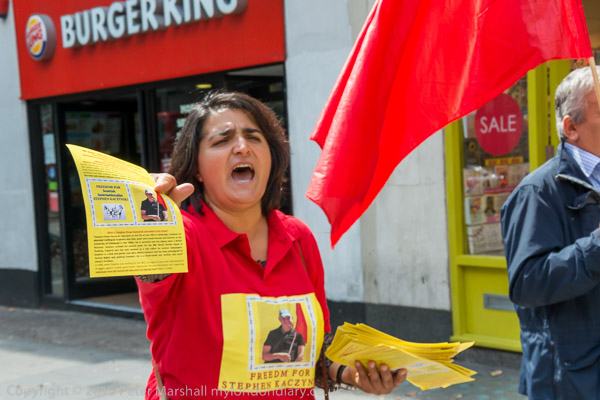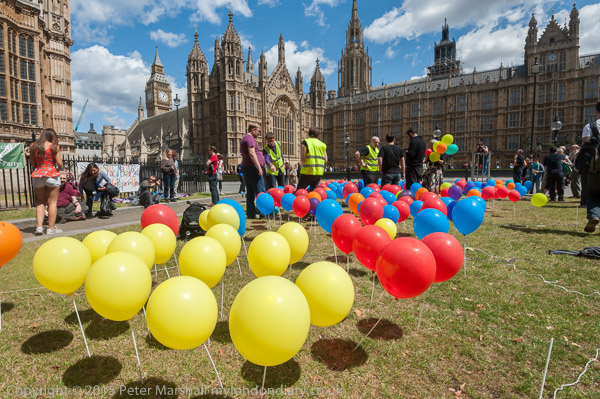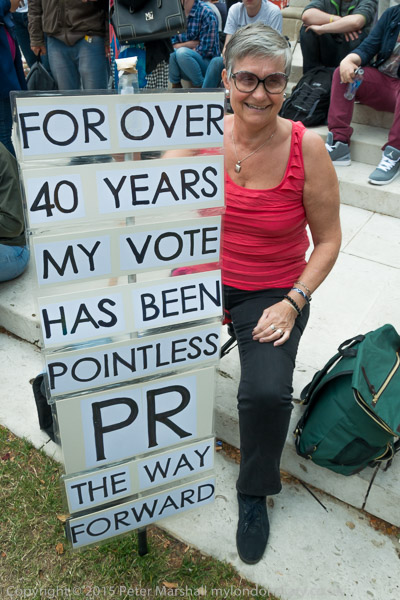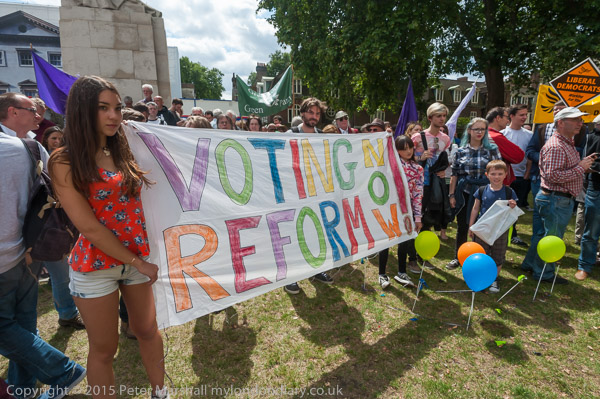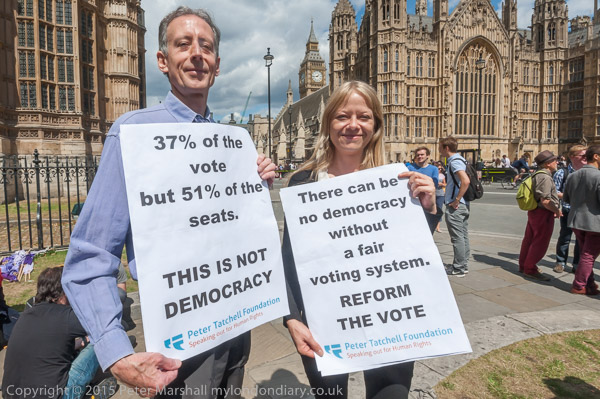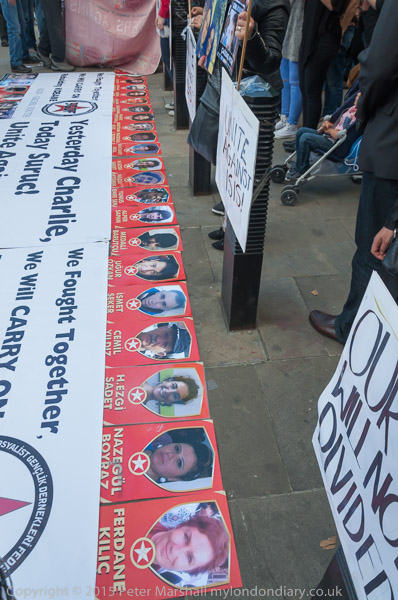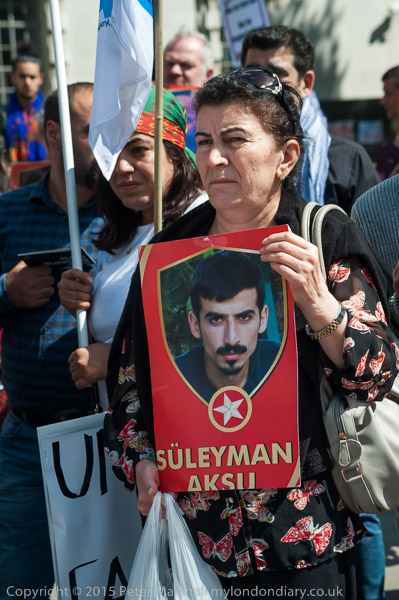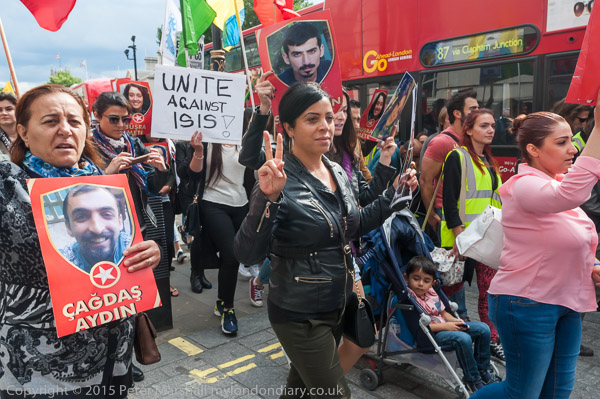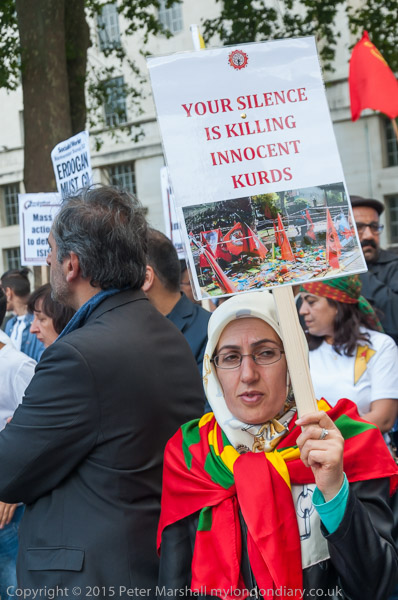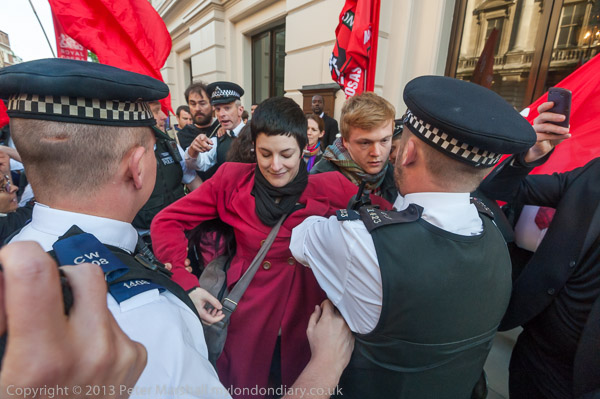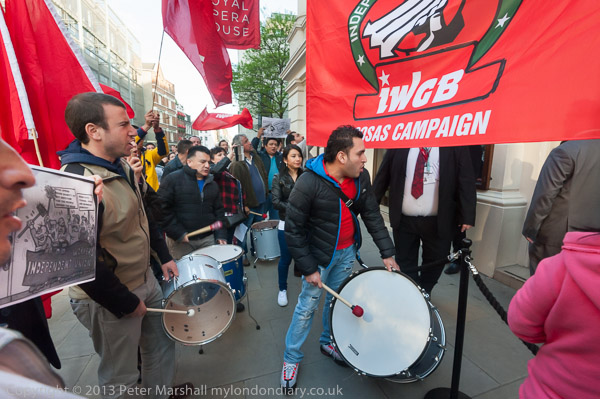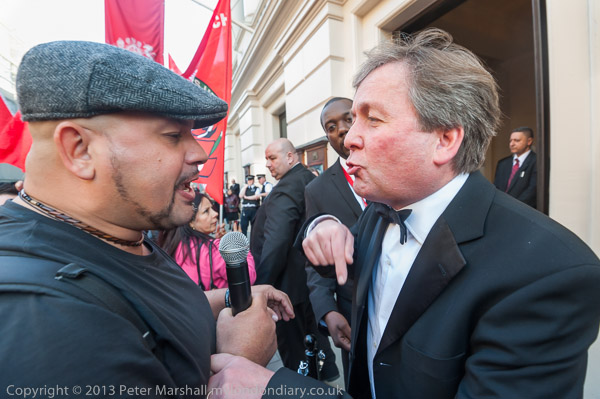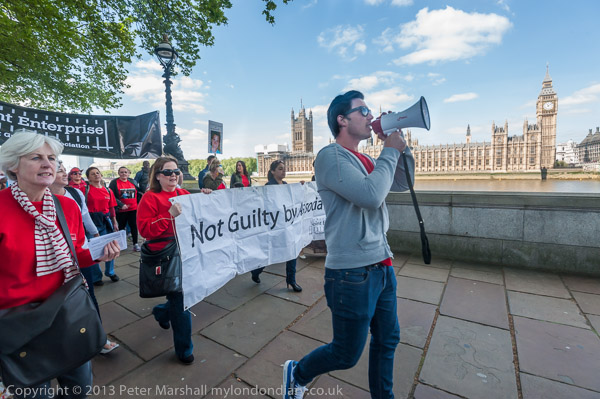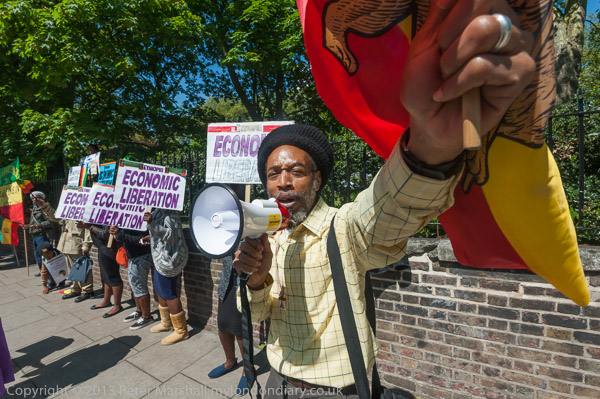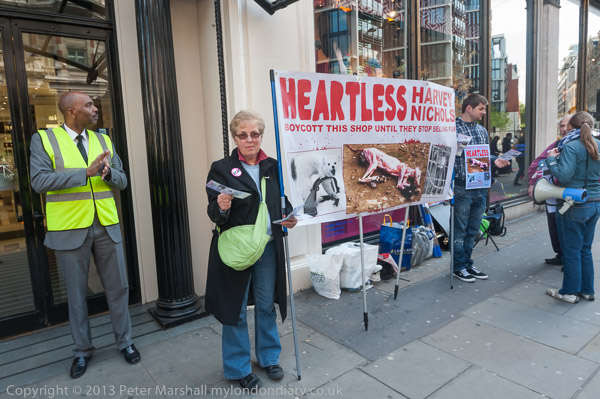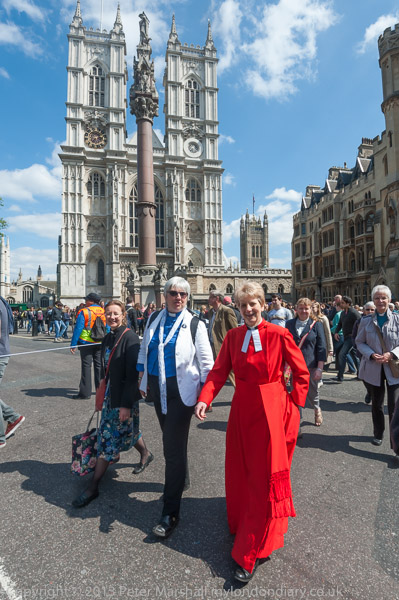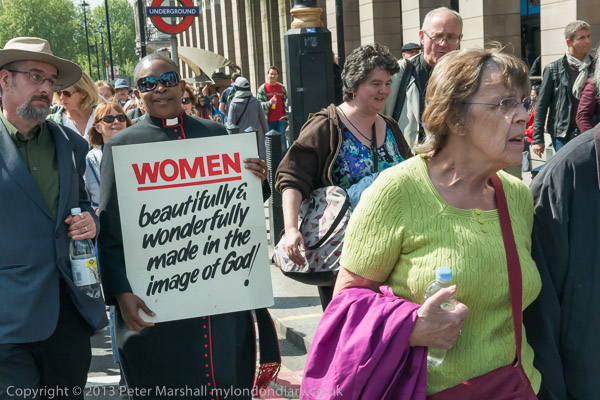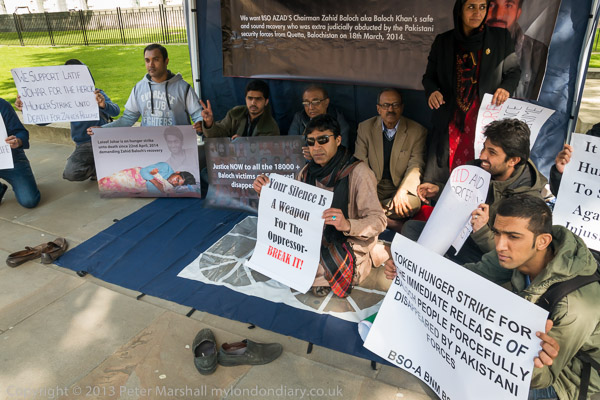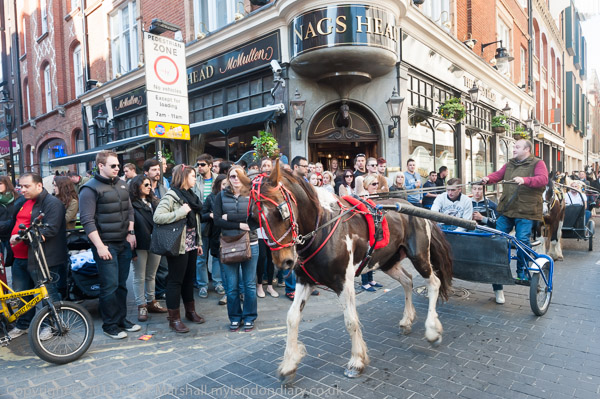Snow, Pensions & Jobs, Hunger Strikers – 2018. On Wednesday 28th February 2018 there was a blizzard in London. University and FE teachers marched through it to a rally about pay and pensions and people came to the Home Office to support hunger strikers in the immigration prison at Yarl’s Wood.
London Snow
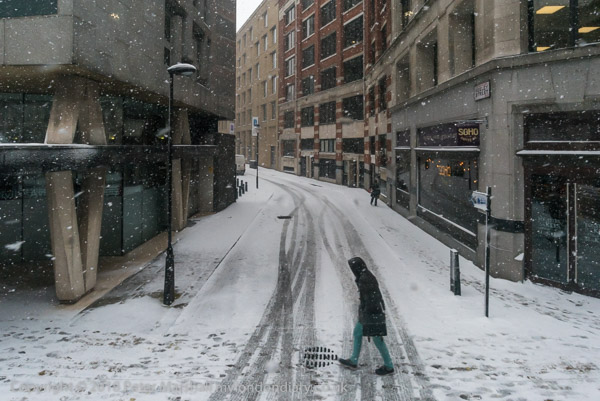
The snow slacked off a little when I was on the bus but got worse as I walked to Malet St for the start of a march. Most of the pictures I tried to take were ruined by snow flakes landing on the front of the lens faster than I could wipe them off.
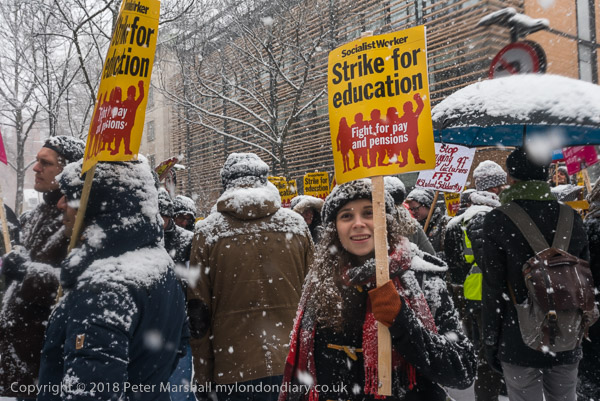
HE and FE march for pensions and jobs
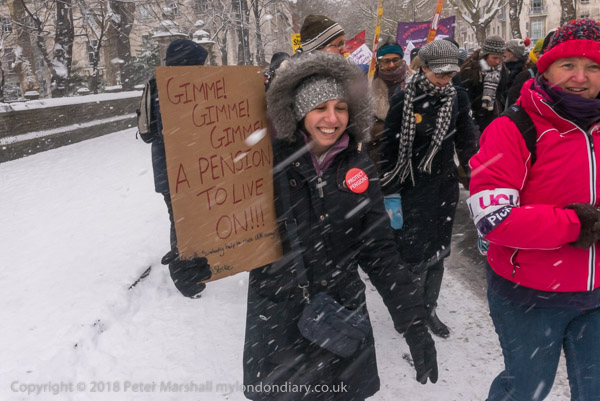
UCU members were on the the fifth day of their strike to get the universities to talk with them about pensions and pay, and marched from Malet St to Methodist Central Hall close to Parliament for a rally.
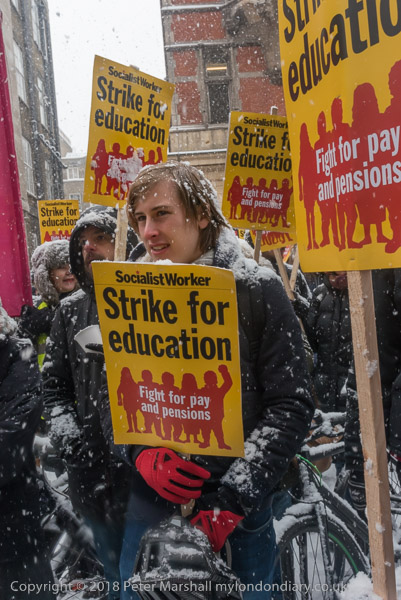
They were joined by staff from London FE colleges on the first day of a two-day strike over pay and conditions, and both groups were supported by large numbers of students. The snow made it difficult to take pictures, and at times it was hard to stop from slipping over on compacted snow. Fortunately it eased off a little after the march started, with just occasional showers as we walked through London.
HE and FE march for pensions and jobs
HE & FE rally for pensions and jobs
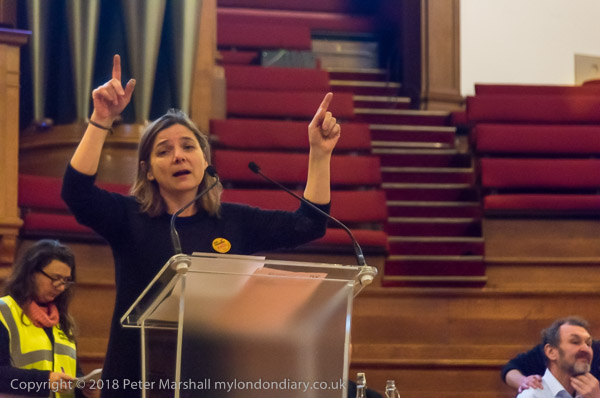
Despite the terrible weather there were more marchers than expected and many were left outside the hall. I don’t usually bother to photograph at indoor rallies and haven’t really got the best equipment for it, but on this occasion I was glad to be able to get inside and warm up a little. My camera lenses were also getting a little steamed up and needed to dry out.
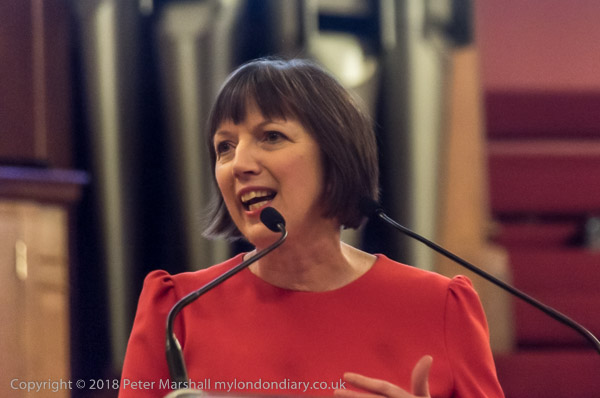
I’ve written more about the reasons for the strikes and a little about the rally on My London Diary and won’t repeat that here. Click the link to find more.
HE & FE rally for pensions and jobs
Solidarity with Yarl’s Wood hunger strikers
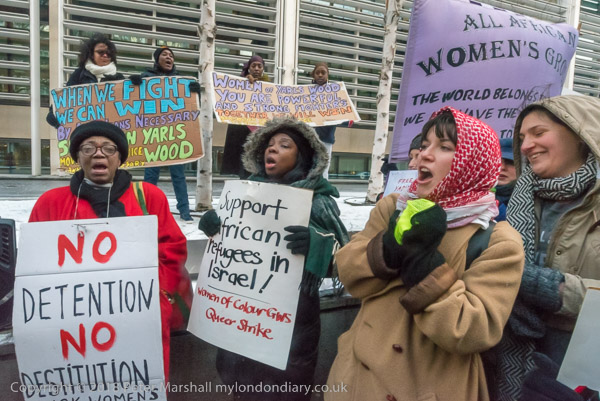
I stayed longer inside the rally than intended, partly because I was reluctant to leave t he warm hall, but as it came to an end I left to walk to the Home Office, where a protest was taking place in solidarity with the 120 women and men in immigration detention at Yarl’s Wood who were refusing to work and had gone on a hunger strike.
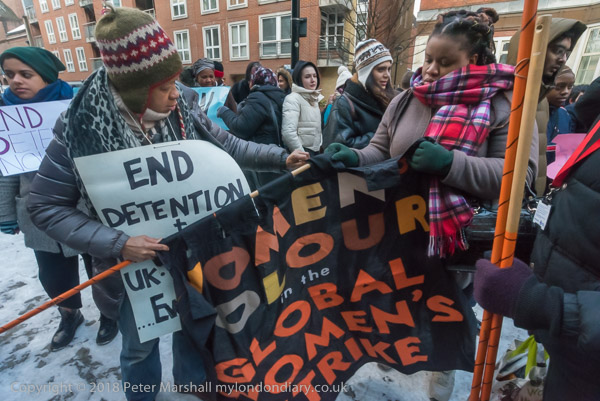
Their action in Yarl’s Wood had started a week earlier and was demanding the Home Office respect the European Convention of Human Rights, end the separation of families, end indefinite detention, with a 28 day maximum detention period, end charter flights which deport people without notice, and end to re-detention of those released from detention.
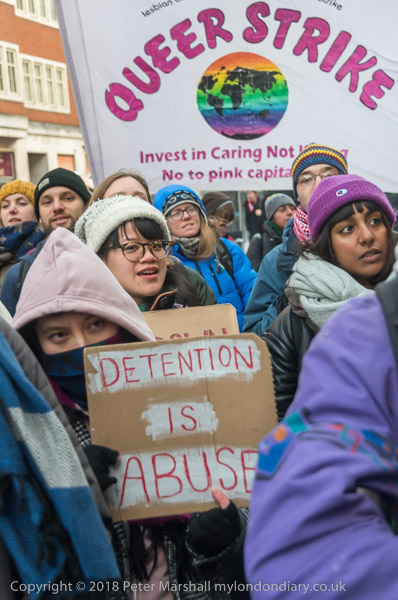
The also called for an amnesty for those who have been in the country for over 10 years, a stop to deportations before cases are decided and any appeals heard, the proper disclosure of all evidence to the immigration tribunals, adequate health care, an end to detaining of highly vulnerable people, an end to employment at £1 per hour and to be treated with the dignity and respect due to all human beings.
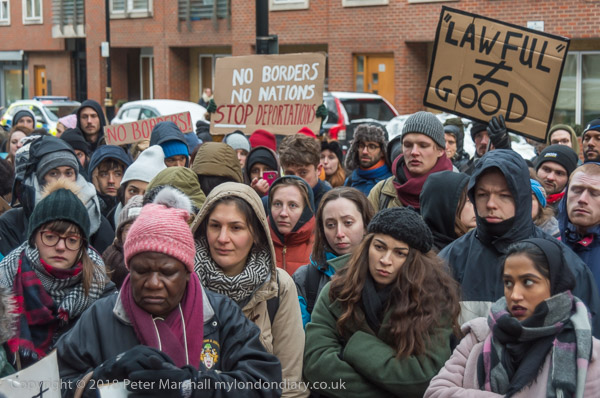
It was a fairly large protest, supported by many groups including Lesbians and Gays Support the Migrants, Detained Voices, Black Women’s Rape Action Project, All African Women’s Group, The London Latinxs, Right to Remain, Docs Not Cops and End Deportations as well as Movement for Justice who have organised many protests outside Yarl’s Wood as well as those at other detention centres and led campaigns to close detention centres and support detainees.
Solidarity with Yarl’s Wood hunger strikers
